We offer PVC spray hoses designed for agriculture, gardening, and industrial spraying systems. These hoses are flexible, durable, and lightweight, making them easy to handle while providing reliable spraying performance. Suitable for a wide range of applications, they ensure efficiency, safety, and convenience across different spraying tasks.
Agricultural Spraying: Our PVC spray hoses are widely used for pesticide and herbicide spraying in farms and plantations. They deliver consistent flow, resist chemicals, and improve spraying efficiency, helping farmers protect crops while ensuring durability under frequent use.
Gardening Applications: Perfect for gardening, these hoses simplify watering and spraying tasks. Flexible and lightweight, they can be easily maneuvered around plants, ensuring even distribution of water or nutrients while offering long-lasting reliability in residential or commercial gardens.
Industrial Use: In industrial settings, our PVC spray hoses handle cleaning, cooling, and spraying needs. They resist wear, maintain pressure stability, and provide dependable performance, ensuring smooth operations in manufacturing plants, workshops, and other demanding environments.
Chemical Resistance: Designed with strong chemical resistance, these hoses safely transport liquids without damage or leaks. They maintain structural integrity while handling pesticides, fertilizers, and cleaning agents, ensuring safety and reliability in agriculture, gardening, and industrial spraying systems.
We are a trusted PVC spray hose manufacturer from China, providing durable and flexible hoses for agriculture, gardening, and industrial spraying applications. Our hoses feature excellent chemical resistance, easy handling, and long-lasting performance. With customizable options to meet diverse project requirements, we ensure reliable solutions that support efficient spraying operations and deliver consistent results across multiple industries.
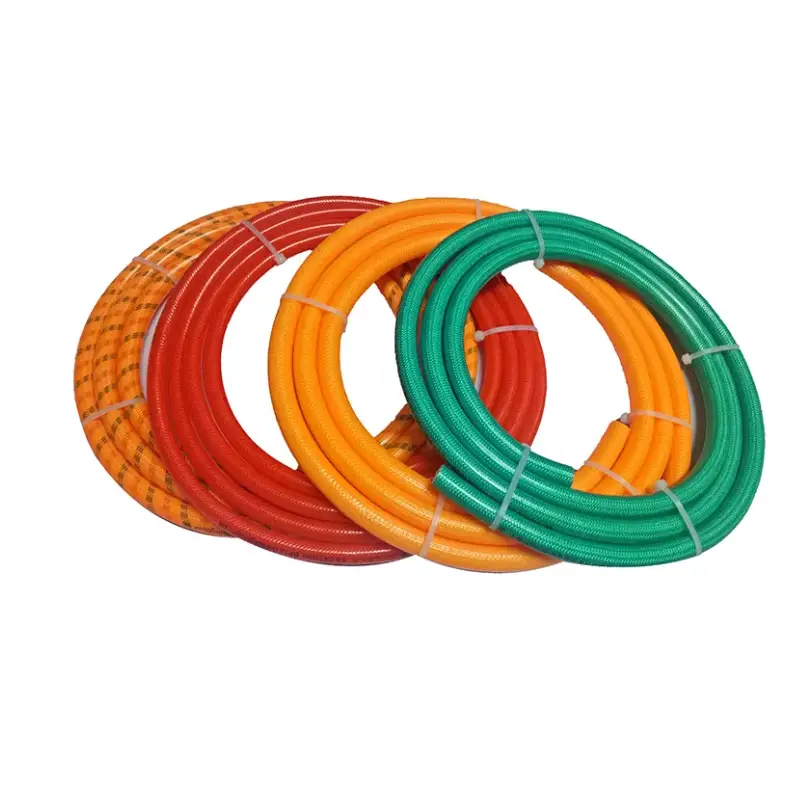
Durability: PVC spray hoses resist wear, abrasion, and environmental stress, ensuring long-term performance and reduced replacement costs for agricultural, gardening, and industrial spraying tasks.
Flexibility: Lightweight and easy to maneuver, these hoses simplify handling, allowing smooth spraying operations even in challenging conditions or around obstacles in farms and gardens.
Chemical Resistance: Built to withstand pesticides, herbicides, and cleaning agents, PVC spray hoses maintain structural integrity, ensuring safe fluid transfer without leaks or damage during operations.
Versatile Applications: Suitable for farms, greenhouses, gardens, and industrial sites, PVC spray hoses provide dependable spraying solutions for diverse industries, enhancing overall productivity and efficiency.
Agriculture: Used for pesticide and herbicide spraying, PVC spray hoses help farmers protect crops, reduce waste, and improve spraying efficiency during fieldwork and greenhouse applications.
Gardening: Perfect for watering plants and spraying nutrients, these hoses provide flexibility and ease of use, ensuring even distribution across residential and commercial gardens.
Industrial Cleaning: Ideal for cleaning machinery, workshops, and production areas, PVC spray hoses withstand chemical cleaners while delivering reliable water or fluid flow during operations.
Greenhouses: Suitable for controlled environments, the hoses simplify irrigation and spraying, helping maintain healthy plant growth while resisting chemicals and frequent handling in greenhouse conditions.
Construction Sites: These hoses are used for dust suppression and cleaning, providing durable and flexible solutions that ensure safety and efficiency in demanding construction environments.
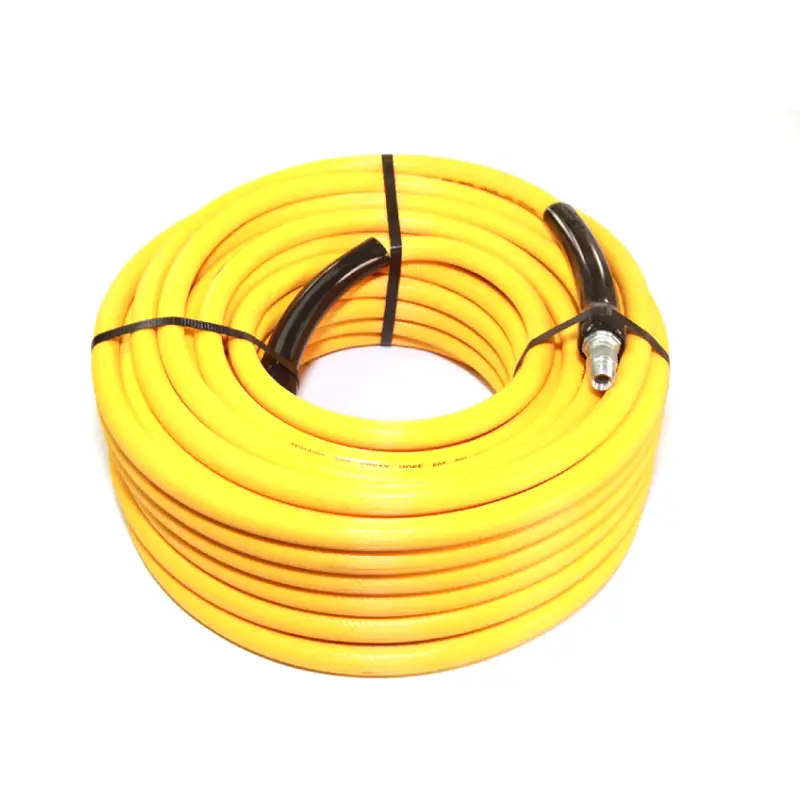
We manufacture all types of PVC spray hoses to meet diverse agricultural, gardening, and industrial spraying needs. Our hoses are durable, flexible, and resistant to chemicals, ensuring safe and reliable performance. With customizable options for length, diameter, and pressure ratings, we provide solutions that enhance spraying efficiency, simplify handling, and deliver consistent results across various applications.
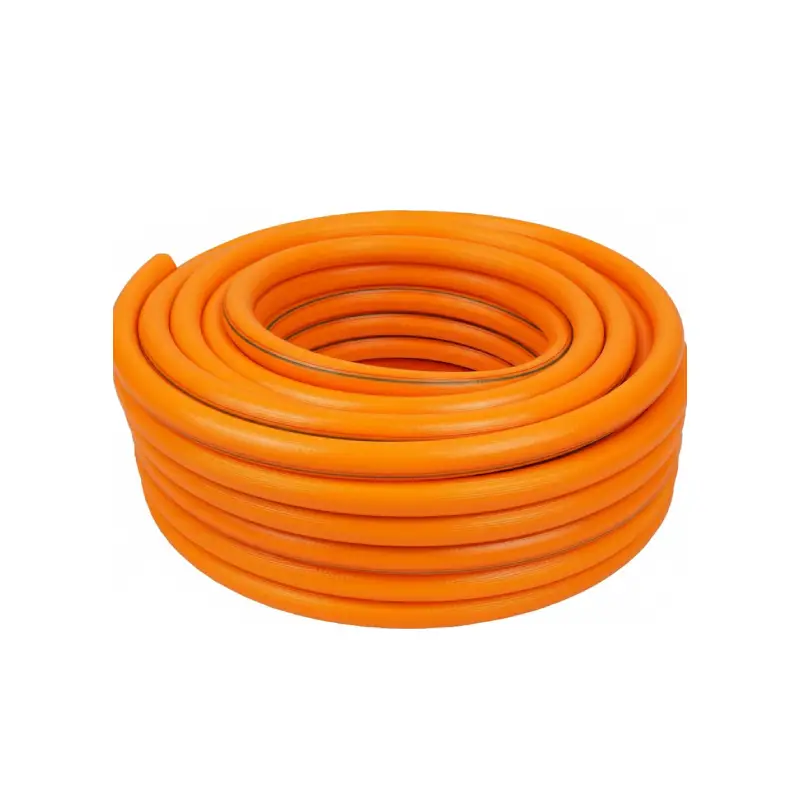
We offer high-pressure PVC spray hoses designed for demanding agricultural, gardening, and industrial spraying applications. These hoses provide reliable fluid transfer under high pressure, are flexible and durable, and resist chemicals. Suitable for various spraying tasks, they ensure efficient operations, easy handling, and long-lasting performance across farms, greenhouses, construction sites, and industrial environments.
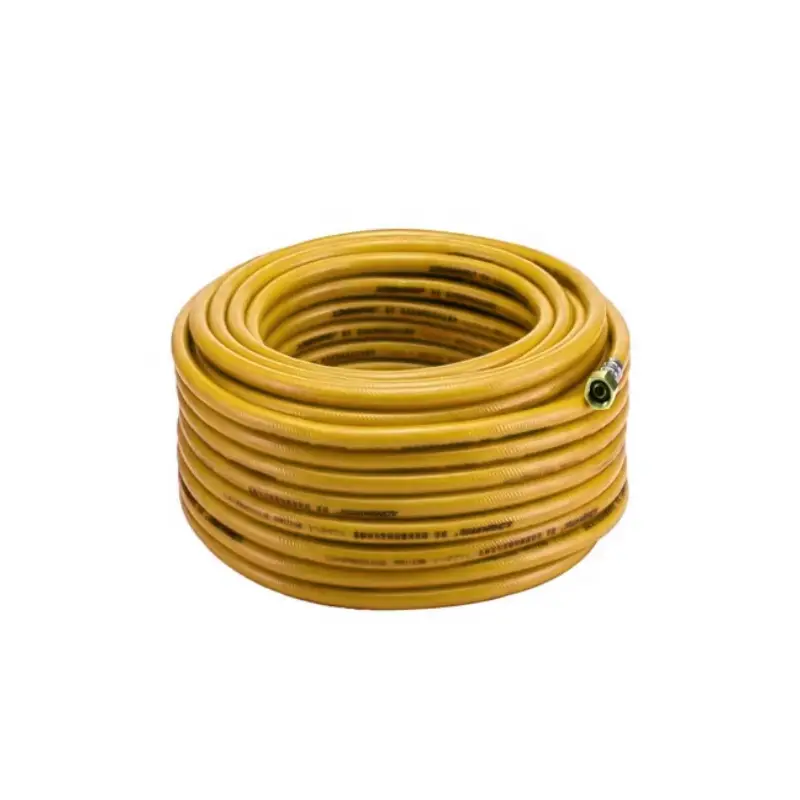
We offer PVC power spray hoses designed for efficient water and chemical spraying in agriculture, gardening, and industrial applications. These hoses are flexible, durable, and resistant to wear and chemicals. Easy to handle and install, they provide reliable performance, ensuring smooth spraying operations while meeting the demands of various environments and operational needs.
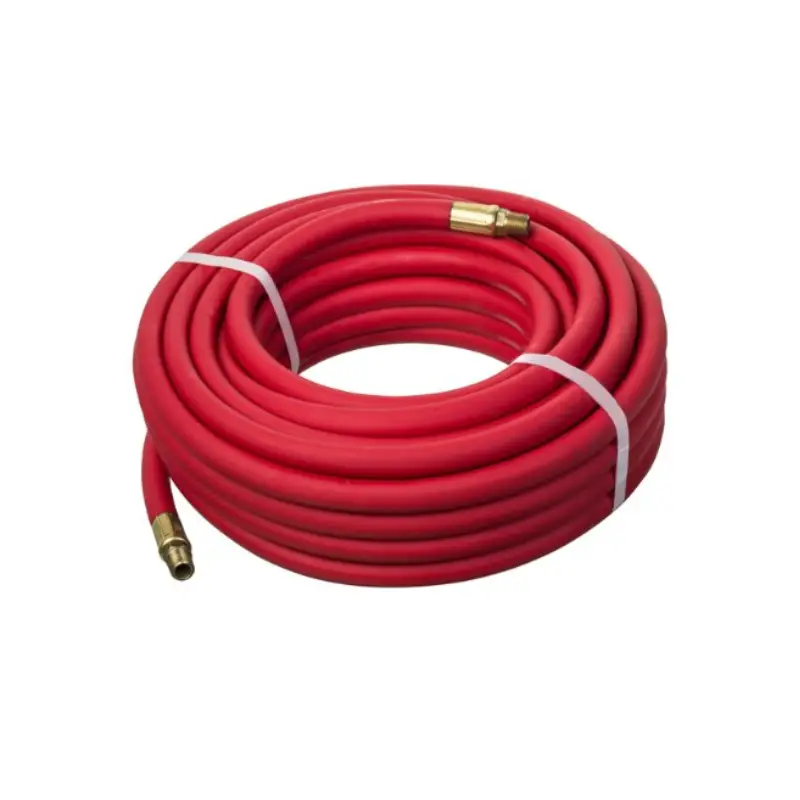
We offer PVC chemical spray hoses designed to handle a wide range of chemicals safely and efficiently. These hoses are flexible, durable, and resistant to abrasion and corrosion, making them ideal for agricultural, gardening, and industrial spraying applications. They ensure reliable chemical transfer, easy handling, and long-lasting performance across various environments.
We understand that every spraying project has unique requirements, so we offer customizable PVC spray hoses to meet your specific needs. From material and size to pressure rating and color, we tailor each hose for optimal performance, safety, and convenience. Our flexible solutions ensure reliable operation across agricultural, gardening, and industrial applications.
We help you choose the right PVC material and reinforcement layers to suit your spraying needs. By selecting appropriate materials, we ensure chemical resistance, durability, and flexibility, providing a hose that performs reliably under various agricultural, gardening, and industrial conditions.
We assist in customizing the hose diameter and length according to your specific project requirements. Proper sizing ensures efficient fluid flow, easy handling, and complete coverage, maximizing spraying performance and minimizing operational difficulties in different applications.
We offer options to adjust the working pressure and burst pressure of your PVC spray hose. By matching pressure specifications to your spraying system, we guarantee safe operation, consistent performance, and reduced risk of leaks or hose failure.
We provide customization of hose colors, stripes, or printed markings for identification, organization, and compliance purposes. Clear markings and color options help streamline installation, maintenance, and inventory management while maintaining professional appearance and safety standards.
A PVC spray hose is a flexible tubing designed for transferring liquids in agricultural, gardening, and industrial spraying applications. Made from durable PVC material, it is resistant to chemicals, abrasion, and environmental stress. These hoses provide reliable fluid flow, easy handling, and long-lasting performance, making them ideal for watering, pesticide application, cleaning, and other spraying tasks.
PVC spray hoses are made from durable polyvinyl chloride (PVC) combined with reinforcing layers for strength and flexibility. This construction ensures resistance to chemicals, abrasion, and environmental conditions. The materials work together to provide long-lasting performance, safe fluid transfer, and reliable operation across agricultural, gardening, and industrial spraying applications.
PVC Material: We use high-quality PVC as the primary material, offering excellent durability, chemical resistance, and flexibility. This ensures hoses can handle various liquids safely while maintaining structural integrity and long-term performance under frequent use in diverse applications.
Reinforcing Layers: Additional reinforcing layers, such as polyester braiding, are included to enhance pressure handling and prevent hose collapse. We ensure these layers provide extra strength, durability, and flexibility, improving safety and efficiency during spraying or fluid transfer operations.
Flexible Design: The combination of PVC and reinforcements results in a hose that is flexible and easy to handle. We design hoses to bend, coil, and maneuver efficiently while maintaining consistent performance and resistance to kinking or damage.
Protective Coatings: Some hoses are coated or treated to increase resistance to UV, abrasion, or specific chemicals. We apply these protective features to extend hose life, ensuring reliable performance and safety in harsh environments and demanding applications.
PVC spray hoses are used to transfer liquids safely and efficiently in agricultural, gardening, and industrial applications. They provide flexible, durable, and chemical-resistant solutions for watering, spraying pesticides, cleaning, and other fluid-handling tasks, ensuring reliable performance, convenience, and long-lasting operation in various environments.
Agricultural Spraying: PVC spray hoses are widely used for distributing fertilizers, herbicides, and pesticides. We ensure smooth fluid flow and chemical resistance, helping farmers efficiently protect crops while reducing waste and maintaining consistent spraying performance across large fields or greenhouses.
Gardening and Landscaping: Ideal for watering plants, lawns, and gardens, these hoses provide flexibility and ease of use. We design hoses to allow even distribution of water or nutrients, ensuring healthy plant growth and efficient maintenance in residential and commercial landscapes.
Industrial Cleaning: In workshops, factories, and production areas, PVC spray hoses handle cleaning and fluid transfer tasks. We provide durable hoses that resist wear, chemical exposure, and high usage, ensuring consistent operation and reliable performance in industrial cleaning applications.
Greenhouse Irrigation: Used in greenhouse systems, PVC spray hoses help distribute water, nutrients, and sprays evenly. We ensure hoses withstand chemical solutions and frequent handling, providing efficient irrigation and maintaining optimal plant health in controlled agricultural environments.